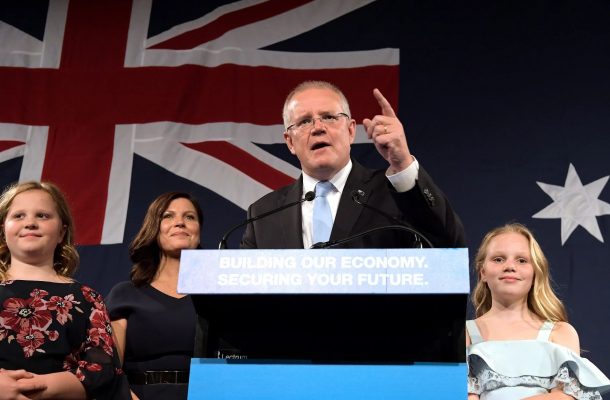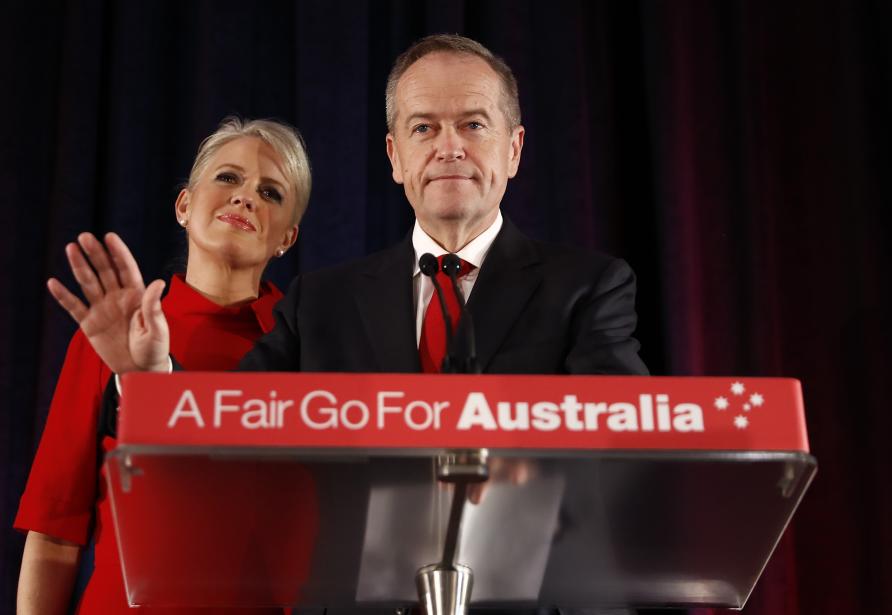Voter aspiration powered the Coalition victory

Not the script written by countless opinion polls that, for nearly four years, had the Coalition intractably trailing Labor. Nor the script written by nearly every political pundit who, right up until the polls closed at 6pm, predicted Labor had the election in the bag.

The polls predicted a comfortable win for Labor at the Federal election.
Instead of the expected swings in key states like Queensland and Tasmania, the status quo not only largely prevailed, in key electorates, particularly regional and outer suburban seats with big blue-collar constituencies, the pendulum swung sharply against the ALP.
Victoria was meant to be a bloodbath for the Government. Instead it achieved a paltry swing and a modest gain of seats for Labor.
Transgressions Didn’t Resonate
The remarkable aspect of Saturday’s outcome is the long list of transgressions the pundits argued would sink the government now seem wildly overblown.
At the top of the list was the government’s recent leadership woes and internal party divisions. Instead, Scott Morrison, and his vernacular brand of leadership, spectacularly prevailed after only eight months as Prime Minister.
The National’s alleged disconnect with the bush was meant to see it usurped by One Nation and Clive Palmer. Following Saturday’s result, its position as the country’s second conservative force appears more entrenched than ever.
The Liberal’s ‘women’ problem likewise was meant to be decisive but seemed to count for little in the overall poll result. Mindsets and policy platforms heavily criticised by the Coalition’s own membership as out-of-step with current times, are now viewed in the election aftermath as net positives.

When Australians went to the ballot box, the Government’s internal chaos no longer seemed to matter.
So instead of a major re-alignment in favour of progressive politics, as most predicted, the left side of national politics now confronts the reality that it – not Australia’s conservatives – are out of step with the majority view.
Refreshed Mandates
In policy terms, the upshot is that instead of sweeping climate change action, Saturday’s poll result has given coal a fresh mandate. Rather than dismantling tax breaks for the well-off, franking credits and negative gearing now seem untouchable.
Wage stagnation is clearly an issue for many households. But the Coalition’s message that wage setting should still be left to the market – in contrast to Labor’s stance that governments should aggressively intervene to raise incomes – means the status quo on this and other key social and economic policy settings will largely prevail.
Commentary around the election now consigns Labor’s transformative policy platform as an epic failure of strategy. The opposition lost because its sweeping reform agenda presented the Government with too many big and easy targets.
The implications for Australian politics are huge. Having deliberately positioned itself as a stark point of difference, the ALP’s shock defeat effectively means current and future political leaders will become even more risk adverse in terms of their policy offerings.

Once the shock of defeat passes, Labor could be contemplating a less ambitious agenda.
Not surprisingly, Labor’s soul-searching is also focusing on its failure to communicate effectively. Recriminations against leader Bill Shorten will be no doubt rumble on over the next few months.
But Mr Shorten’s swift resignation on election night will see a shell-shocked ALP quickly focus on fashioning a far less ambitious, far less progressive policy agenda.
Aspirational Australia – An Election Winner
There are any number of lessons that the Coalition can celebrate in what will be counted among its greatest election victories.
Its message of ‘aspirational individualism’ highlights the continuing salience of a narrative it has consistently deployed for nearly two decades. For all of Labor’s questioning of the effectiveness of markets to deliver opportunity to individuals, Saturday’s result shows market-led ‘aspiration’ continues to trump government-sponsored ‘fairness’ in the minds of middle Australia.
Stability will also be the winner with Scott Morrison’s authority, on the back of his ‘miracle’ win, effectively ending years of internal instability within the Liberals.
A Senate cross-bench that seems more attuned to the Liberal’s economic conservatism is also a major plus for the Coalition from Saturday’s result.
But while it is riding a huge high, there are dangers. The Coalition won largely with negative messaging in response to Labor’s agenda.
They will need to quickly flick the switch to a more positive message and agenda, one that convinces the public they can proactively navigate what are likely to be increasingly choppy economic waters in the next few years.

The challenge for Prime Minister Scott Morrison is avoiding complacency – and the issue of climate change won’t go away.
Balancing Polarised Views
Arch-conservatives within the party will feel emboldened by the result, particularly their view that climate change shouldn’t dominate the re-elected government’s agenda.
Large sections of the Australian community, including many within the Liberal party, however still want to see more comprehensive climate change action than that proffered by the Coalition during the campaign.
Morrison will need to adroitly balance these polarised forces, or risk his authority being eroded by the same energy wars that have undone a succession of Prime Ministers over the past decade.
Which highlights an overarching danger, not just for the government but for Australian politics generally. The election result may create a complacency that ramping up climate change action or levelling economic or tax privileges should be de-emphasised.
But those who support these changes, support them aggressively and tenaciously. And as more young people join the ranks of the voting public, these issues are likely to become more, not less, intensely supported and fought over.
This is why Saturday’s result may only signal a temporary pause in Australia’s growing political polarisation and policy fractiousness.
This article was co-published by Pursuit and Election Watch.
Mark Triffitt lectures in public policy and politics at the University of Melbourne. He was formerly Director of Strategic Communications with the Business Council of Australia and Executive General Manager of Corporate Affairs at Wesfarmers.










